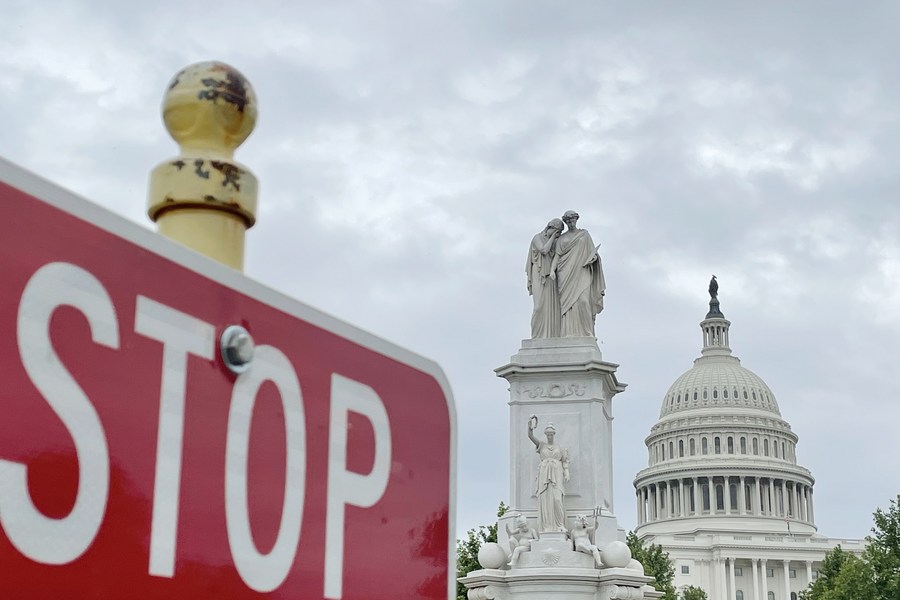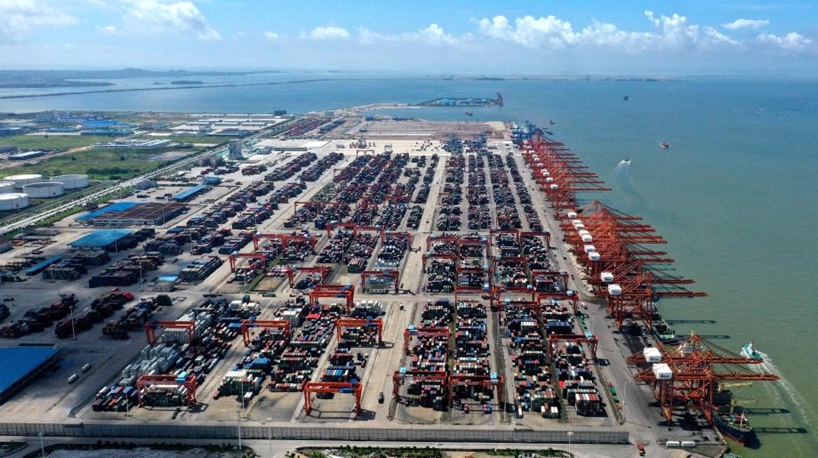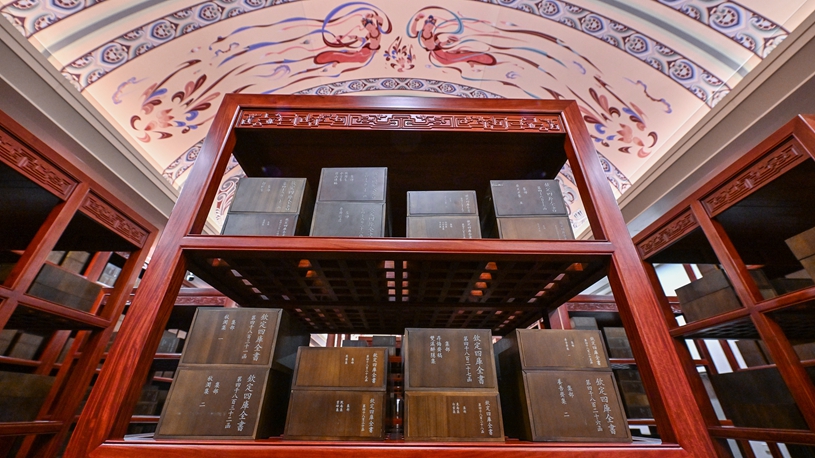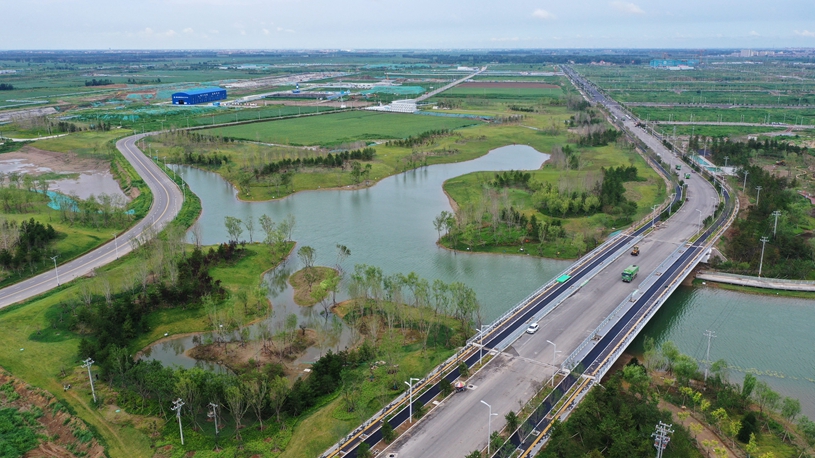
Photo taken on May 28, 2021 shows the U.S. Capitol building behind a traffic sign in Washington, D.C., the United States. (Xinhua/Liu Jie)
Clearly, the United States and its Western allies, obsessed with inflating the so-called "China threat," have been trying to stir up geopolitical confrontation and justify America's hegemonic ambition.
by Xin Ping
BEIJING, Aug. 1 (Xinhua) -- While Americans are fretting about rampant price hikes, there is another type of inflation that is overlooked in the United States -- the inflation of the so-called "China threat."
According to the new findings of the Quincy Institute, the United States has been inflating the so-called "China threat" through assessments oftentimes based on evidence that is inadequate, distorted or incorrect, illogical thinking and narrow impulses that are political, ideological or emotional.
The inflation of the so-called "China threat" is like junk food for the United States, producing feelings of euphoria yet sabotaging its China strategy in the short and long term.
Washington has been used to inflating the so-called "China threat." Immediately after U.S. President Joe Biden took office last year, his administration defined China as "the most serious competitor." Later, it positioned China as "the most serious long-term challenge to the United States."
Not long ago, U.S. Secretary of State Antony Blinken clarified Washington's China strategy in three words: invest, align and compete, which means to invest domestically, work with allies and compete with China in key areas.
In the North Atlantic Treaty Organization (NATO)'s latest strategic concept document, the U.S.-led NATO identifies China as a source of "systemic challenges" to Euro-Atlantic security, even though China has no intention to replace the United States in the global system or to undermine the existing international rules.
Clearly, the United States and its Western allies, obsessed with inflating the so-called "China threat," have been trying to stir up geopolitical confrontation and justify America's hegemonic ambition.
In fact, the United States is actually the biggest threat to world peace and order. In the country's 240-plus-year history, there were only 16 years when it was not at war with others.
With over 800 military bases in 80 countries and regions worldwide, the United States has blatantly placed its domestic law above international law and selectively applied international rules in its own interests. Clear-eyed witnesses have testified to the world's sole superpower abusing its financial hegemony and technological clout through unilateral sanctions and long-arm jurisdiction, which gravely undermines other countries' sovereignty and security. In this sense, the United States of America is indeed "the United States of Sanctions."
America is actually shooting itself in the foot by mistaking China's moves as a sign of aggression. The U.S. actions have also proved themselves to be nothing but counterproductive.
Though its trade war against China was designed to undermine the latter's export advantage, the United States has in turn imposed a heavy burden on itself, as U.S. tariffs against China have cost American companies more than 1.7 trillion U.S. dollars in market capitalization and increased average household expenditure by 1,300 dollars per year.
In 2020, U.S. military spending ranked first in the world, more than the next nine top-spending countries combined. Yet it has continued exploiting resources to compete with a country whose military spending is just less than one third of its amount. Those resources could have been used to boost the gloomy U.S. economy and improve the livelihood of the American people.
What's worse, the United States is on a dead-end path by trumpeting the so-called "China threat," as any detente or cooperation with China would be labeled as "appeasement" or "weakness." This makes it difficult for any substantive bilateral cooperation to take place, even in such politically neutral fields as climate change.
Yet from the White House to Wall Street, the United States knows quite well that there is no way to shy away from cooperation with China amid the nearly double-digit U.S. inflation and supply chain disruptions.
Unfortunately, the United States is still touting China-phobia by misunderstanding and misjudging China and bilateral relations. While inflation is ravaging the U.S. economy, the inflation of the so-called "China threat," if left unchecked, will eventually hurt America's own interests and those of the world. After all, the country's Cold War mindset brings nothing but disasters. Enditem
(Xin Ping is a commentator on international affairs, writing regularly for Xinhua, CGTN, Global Times, China Daily, etc. He can be reached at xinping604@gmail.com.)■












